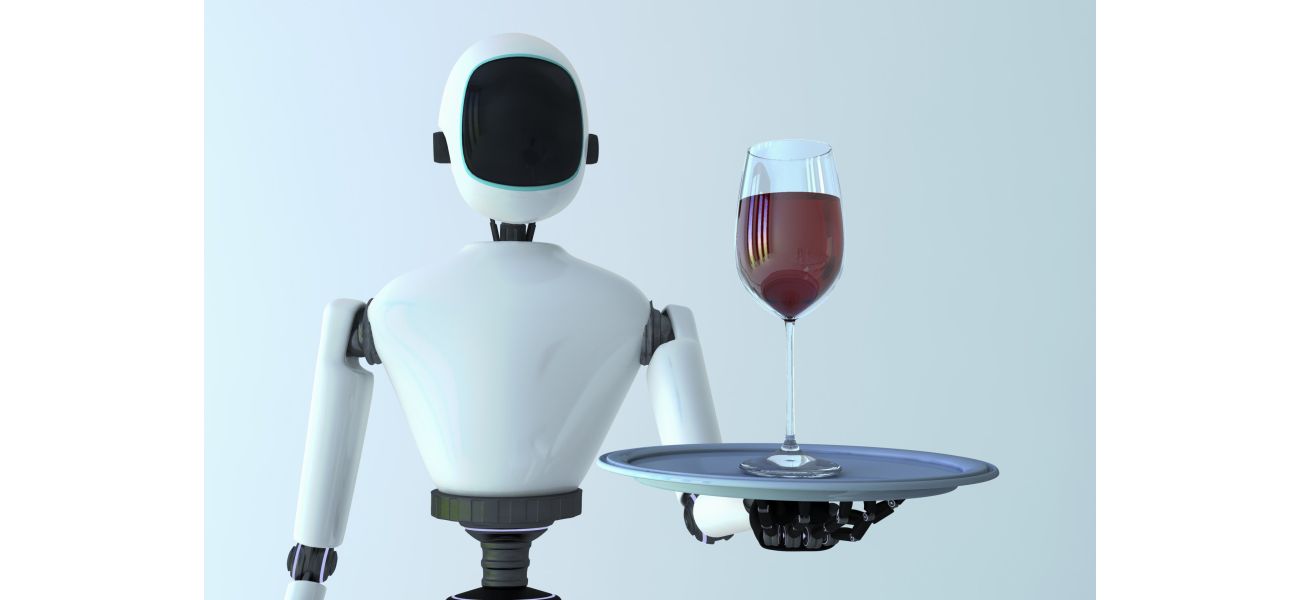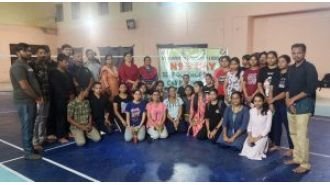An AI device can distinguish between Coke and Pepsi using its 'tongue' technology.
The future of wine waiters may be in jeopardy due to taste buds.
October 15th 2024.

On Wednesday, a team of scientists made an exciting announcement - they have created an "AI tongue" that can distinguish between Pepsi and Coca-Cola. This advanced technology, developed at Penn State University in Pennsylvania, has the ability to detect, classify, and even assess the freshness of food and drink. It's like having a highly skilled taste tester at your disposal!
One of the most impressive aspects of this invention is its ability to identify contaminants in food that can make people sick. For example, it can detect if milk has passed its use-by date, ensuring that consumers avoid consuming spoiled products. The tongue is made of graphene and chemical sensors, which work together to analyze the makeup of liquids and convert their findings into electronic signals.
But the most fascinating feature of this "AI tongue" is its algorithm, which mimics the thought processes of a human brain. This allows it to become familiar with various flavors and develop a sense of taste, just like we do. During the research process, the tongue was given different tasks to learn, and it proved to be quite skilled at detecting different types of beverages, such as watered-down milk, sodas, coffee, and fruit juices.
In fact, the study found that the tongue had an accuracy rate of over 80% when identifying these drinks. When it came to determining the type and age of fruit, its accuracy levels were even higher, reaching 98% and 99%, respectively. This is a remarkable feat, considering the complexity of the chemical compositions in food and the ever-changing nature of taste.
The researchers behind this project have emphasized the potential applications of their invention beyond just food detection. They believe that it could also be used in medical diagnostics. Professor Saptarshi Das, who works in engineering science and mechanics at Penn State, explained, "We're trying to make an artificial tongue, but the process of how we experience different foods involves more than just the tongue. We have the tongue itself, consisting of taste receptors that interact with food species and send their information to the gustatory cortex - a biological neural network."
In conclusion, this groundbreaking technology has the potential to revolutionize the way we assess the quality and safety of our food. With its impressive accuracy and advanced capabilities, the "AI tongue" may soon become an essential tool in both the food and medical industries.
One of the most impressive aspects of this invention is its ability to identify contaminants in food that can make people sick. For example, it can detect if milk has passed its use-by date, ensuring that consumers avoid consuming spoiled products. The tongue is made of graphene and chemical sensors, which work together to analyze the makeup of liquids and convert their findings into electronic signals.
But the most fascinating feature of this "AI tongue" is its algorithm, which mimics the thought processes of a human brain. This allows it to become familiar with various flavors and develop a sense of taste, just like we do. During the research process, the tongue was given different tasks to learn, and it proved to be quite skilled at detecting different types of beverages, such as watered-down milk, sodas, coffee, and fruit juices.
In fact, the study found that the tongue had an accuracy rate of over 80% when identifying these drinks. When it came to determining the type and age of fruit, its accuracy levels were even higher, reaching 98% and 99%, respectively. This is a remarkable feat, considering the complexity of the chemical compositions in food and the ever-changing nature of taste.
The researchers behind this project have emphasized the potential applications of their invention beyond just food detection. They believe that it could also be used in medical diagnostics. Professor Saptarshi Das, who works in engineering science and mechanics at Penn State, explained, "We're trying to make an artificial tongue, but the process of how we experience different foods involves more than just the tongue. We have the tongue itself, consisting of taste receptors that interact with food species and send their information to the gustatory cortex - a biological neural network."
In conclusion, this groundbreaking technology has the potential to revolutionize the way we assess the quality and safety of our food. With its impressive accuracy and advanced capabilities, the "AI tongue" may soon become an essential tool in both the food and medical industries.
[This article has been trending online recently and has been generated with AI. Your feed is customized.]
[Generative AI is experimental.]
0
0
Submit Comment





